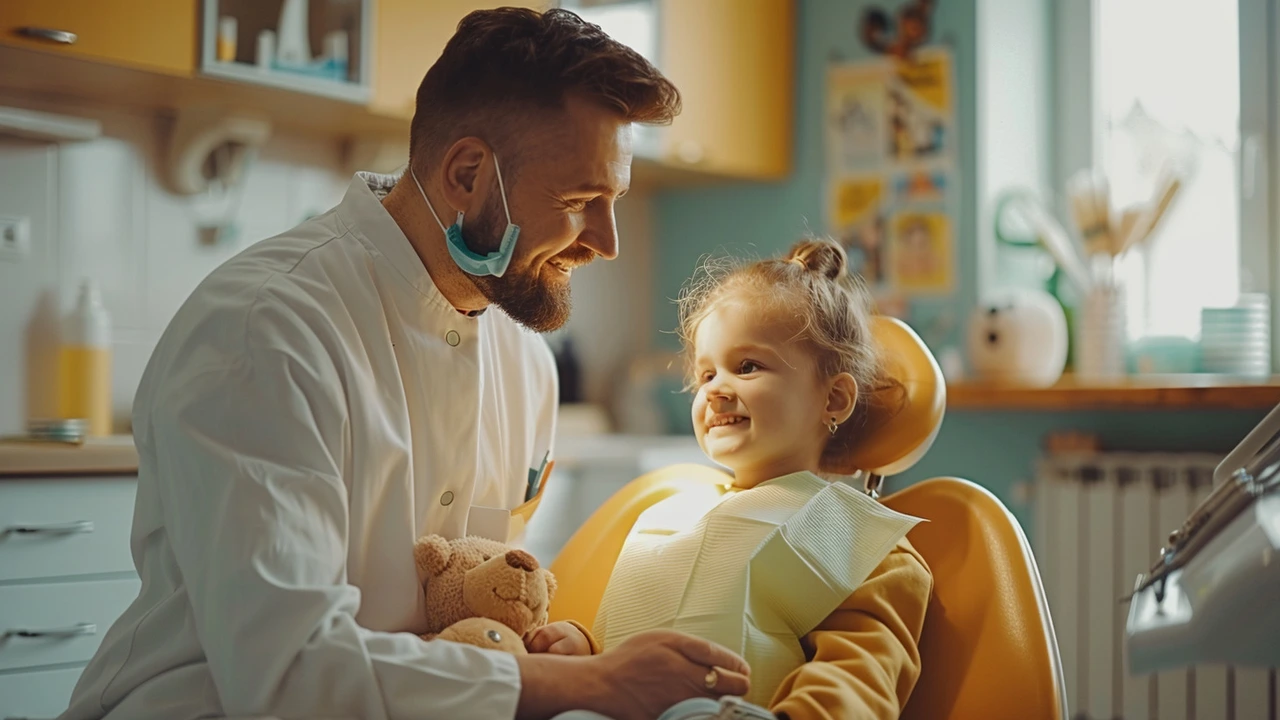-
Jak moc bolí zánět zubu? Příčiny, léčba a prevence bolesti
Jan 21, 2024 -
Kompletní průvodce k úžasnému úsměvu: Zuby, které hrají klíčovou roli
Mar 17, 2024 -
Jak dosáhnout bílých zubů přirozenou stravou: Ultimátní průvodce
Mar 24, 2024 -
Rozpoznání parodontitidy: Příznaky, Prevence a Léčba
Dec 20, 2023 -
Bílá dieta po zubním bělení: Jak udržet váš úsměv zářivý
Apr 7, 2024

- Veronika Skalická
- Apr 24, 2024
- 0 Comments
Importance of Preventive Care in Pediatric Dentistry
Představte si svět, kde není zubní kaz u dětí normou, ale spíše výjimkou. Tento ideál je základem dětské stomatologie, která klade velký důraz na preventivní péči. Již od raného věku je pro děti zásadní naučit se správné techniky čištění zubů a používání zubního nitě. Ale jak toho dosáhnout, když mnoho dětí považuje čištění zubů za nudnou povinnost?
Pediatric dentists often use techniques that make dental care fun and engaging. For example, demonstrating brushing techniques on a favorite toy or using toothbrushes and pastes that feature children's favorite characters. It's not just about making it fun; it's about making dental hygiene a habitual part of children's lives. Weakly structured routines can lead to poor dental health, which is why consistency is key.
The preventative nature of pediatric dentistry doesn't stop at home care. Regular dental check-ups from a young age are crucial for early detection and management of potential issues such as misalignment or early signs of decay. Catching these issues early can prevent more serious problems in the future and also reduce the fear and anxiety associated with more invasive dental procedures.
Innovative methods such as sealants and fluoride treatments are also part of the preventive strategy. Sealants are a protective coating applied to the biting surfaces of the back teeth and are highly effective in preventing decay. Fluoride applications help to strengthen enamel and prevent the demineralization that leads to cavities. These treatments, combined with regular professional cleanings, play a critical role in maintaining dental health in children.
Addressing Specific Dental Health Issues in Children
While preventive care forms the backbone of pediatric dentistry, there are instances where specific treatments are necessary. Issues like baby bottle tooth decay, thumb sucking, and the use of pacifiers are common and need specialized attention. These problems if not addressed timely, can lead to misaligned teeth, improper jaw development, and other oral health issues. Pediatric dentists are trained to provide guidance on how to wean children off these habits and introduce healthier alternatives.
Another significant aspect of pediatric dentistry is dealing with dental emergencies that are common in children, such as knocked-out teeth or fractures due to falls or sports. In such situations, the speed and accuracy of the response can greatly impact the prognosis of the tooth. Pediatric dentists are equipped to handle such emergencies, ensuring that the child receives immediate and effective care.
For children who are particularly anxious or have special needs, sedation dentistry can be an option to consider. Techniques like nitrous oxide, or 'laughter gas', can make the dental visit less stressful. Pediatric dentists are skilled in using these techniques safely, making sure that the child's experience is as calm and pain-free as possible.
It is also essential to mention that dental issues in children can sometimes indicate other health problems. For example, untreated dental decay can lead to poorer general health and distract children from eating, speaking, and learning. Pediatric dentists work closely with other healthcare providers to ensure a holistic approach to a child's health, encompassing not only dental but also general wellness.
Your comment